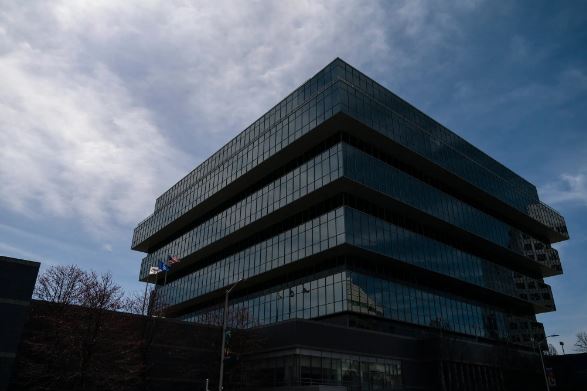The Supreme Court has thrown a wrench into the hard-fought settlement of thousands of lawsuits against Purdue Pharma, rejecting liability protections for the company’s owners, the Sackler family. This decision effectively blocks the release of billions of dollars meant to combat the opioid addiction crisis, leaving the future of many long-standing cases in limbo.
The ruling struck down a key condition insisted upon by the Sacklers: immunity from all current and future opioid lawsuits in exchange for payments up to $6 billion to plaintiffs. This has left states, local governments, tribes, and over 100,000 individuals who sued Purdue, known for its prescription painkiller OxyContin, figuring out their next moves.
Purdue Pharma called the decision “heart-crushing,” highlighting that the settlement had been overwhelmingly agreed upon by the plaintiffs. The company plans to re-engage with creditors to find a way to emerge from bankruptcy and start distributing funds.
The Sackler family expressed willingness to continue discussions, hoping to reach a resolution that provides substantial resources to address the opioid crisis. However, they did not confirm whether they would still agree to pay billions without liability protections. Their statement warned of “costly and chaotic legal proceedings” if no agreement is reached but maintained confidence in prevailing in future litigation.
Several states are eager to resume talks. North Carolina Attorney General Josh Stein emphasized the need for Purdue and the Sacklers to pay up to save lives and combat addiction, threatening court action if they refuse. Lawyers representing local governments also noted that delays are eating into potential payouts due to accumulating legal fees, vowing to pursue justice against the Sacklers.
A significant question now is how much the Sacklers will be willing to pay without comprehensive liability protection. Some lawyers involved in the negotiations anticipated the Supreme Court’s decision and have scheduled mediation sessions, remaining hopeful for a resolution.
Typically, companies emerging from bankruptcy receive protection from civil lawsuits. However, the Supreme Court ruled that the Sacklers, who did not file for bankruptcy, are not entitled to such a shield. This decision aligns with the U.S. Trustee, an arm of the Justice Department overseeing the bankruptcy system, which argued that granting the Sacklers protection would violate the due process rights of future plaintiffs.
The ruling has returned negotiations to the bankruptcy court. Connecticut Attorney General William Tong, who had fought the settlement, praised the decision, asserting that billionaire wrongdoers should not shield “blood money” in bankruptcy court.
The settlement also included payments to tribes. Verlon Jose, chairman of the Tohono O’odham nation, criticized the Sacklers for causing widespread suffering and an epidemic of addiction, emphasizing that while the Sacklers remain billionaires, people continue to die from addiction.
Among the few pharmaceutical companies that agreed to payouts for individual victims, Purdue had planned compensation ranging from $3,500 to $48,000 for over 100,000 plaintiffs, including families of overdose victims. Ryan Hampton, representing individual victims in the Purdue bankruptcy, stressed the need to protect these compensations in any new negotiations, emphasizing that victims must come first.
Ellen Isaacs, whose son died from an overdose, had opposed the Purdue settlement because it granted the Sacklers legal immunity. Her lawyer, Michael Quinn, welcomed the ruling, noting it preserves victims’ rights to either consent to a deal or pursue court action against the Sacklers.
The billions from Purdue and Sackler settlements, like the more than $50 billion from other pharmaceutical companies in the national opioid litigation, are intended for addiction education, treatment, and prevention. Each state has its own protocols for disbursing these funds.
Purdue Pharma, seen as a major player in the opioid crisis with its introduction of OxyContin in 1996, faced nearly 3,000 lawsuits by September 2019. The Sacklers’ insistence on immunity has been the primary obstacle to resolution. Despite years of resistance, many state attorneys general eventually conceded to the Sacklers’ demand to expedite the deal, but the Supreme Court’s ruling has now upended those efforts.

